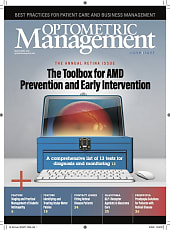This article was originally published in a sponsored newsletter.
No one plans to be out of work unexpectedly, but life can surprise us. Whether due to an illness or a sudden change in your team’s availability, you need a contingency plan to keep your practice steady.
For you, the practice owner, it is essential to focus on financial stability and documentation. If you handle the bookkeeping yourself, think about what happens if you are suddenly unavailable. Will bills, payroll, and other financial responsibilities be managed smoothly in your absence? Bringing in a CPA or trusted bookkeeper who knows your practice’s finances can help prevent gaps and keep the business running smoothly should you need to take time away. This financial backup is a peace-of-mind investment; not just for you, but also for your family.
Your family and everyone involved in your practice benefit from a written contingency plan. This plan should include clear directions on who to contact, what needs to happen and how to keep the business operational. Having everything documented avoids ambiguity and offers security and direction in difficult times. It is important to discuss a similar plan with key team members—especially your office manager—who can keep things on track if something happens to you. These can be tough conversations, but your team will appreciate the clarity they bring. Using simple documentation software like Tettra or Google Docs can be a great way to keep everything organized, up to date and accessible for your entire team.
If your team has read my previous Tip of the Week about using a password management tool, you probably have some plan in place for them to get into your software in your absence. If you are not currently using a password management tool, I recommend 1password to ensure someone can access your Quickbooks, ADP, the practice’s bank accounts and other software you use. Do not write those passwords on a sticky note!
In terms of team responsibilities, having well-organized tools and resources in place is key to keeping your practice running without interruption. Training materials are a must. Written manuals are invaluable, but take it a step further with video guides for essential tasks. Check out this Tip of the Week for advice on creating these videos if you haven’t already.
It is also smart to establish backup plans for specific roles, such as the insurance biller, lab support and associate doctors:
- Insurance Billing: If you’re forced to stop billing insurance, your cash flow will be negatively impacted. Make sure you have a trained person who can step in and help file medical claims for the practice in situations when your normal biller is out of the office. Although training a second person (or even a third) will help, it still might be difficult to keep track of all of the different outstanding claims when your main person is out. You can set up internal systems or look into external software or organizations that specialize in billing help. These services allow others to see exactly where each claim left off, making it easier for someone else to handle claims and billing.
- Lab Work: If you edge lenses in-house, train a back-up and have your lab manager test out a few labs that can cut and edge lenses quickly, reliably and affordably in case this person is out for a period of time. Hopefully you’ll use your typical lab, but run a mock scenario to try them out now and make sure you have a plan before you’re put in a situation where you have no way of completing your patients’ orders.
- Doctors: Build relationships with reliable fill-in doctors now to ease transitions when needed. Bring them into your office for a day or two a few times per year, even if you don’t need them. You can even bring them in for an extra doctor day during a busy time of year so their book gets filled and you get some extra income. Introducing these doctors to your practice’s systems now will ensure smoother operations during high-demand periods when they are needed to fill in.
In tough times, teams often show extraordinary strength, coming together with resilience and dedication, often leaving a practice stronger. I’ve seen firsthand how groups rally to overcome challenges and lift the practice to new heights. If you have experienced this with your team, take a moment to recognize their efforts again. Let them know how much their hard work meant to you then and still does now.
Creating a strong contingency plan is not just about preparing for the unexpected; it’s about building a practice that thrives, come what may. Taking time today to organize these steps will give you the peace of mind to face tomorrow with confidence and resilience.




